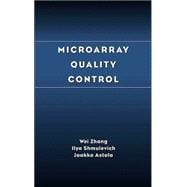
Note: Supplemental materials are not guaranteed with Rental or Used book purchases.
Purchase Benefits
What is included with this book?
Ilya Shmulevich, Ph.D., received his Ph.D. degree in Electrical and Computer Engineering from Purdue University, West Lafayette, Indiana in 1997. In 1997-1998, he was a postdoctoral researcher at the Nijmegen Institute for Cognition and Information at the University of Nijmegen and National Research Institute for Mathematics and Computer Science at the University of Amsterdam in The Netherlands, where he studied computational models of music perception and recognition. In 1998-2000, he worked as a senior researcher at the Tampere International Center for Signal Processing at the Signal Processing Laboratory in Tampere University of Technology, Tampere, Finland. Presently, he is an Assistant Professor at the Cancer Genomics Laboratory at The University of Texas M. D. Anderson Cancer Center in Houston, TX. He is an Associate Editor of Environmental Health Perspectives: Toxicogenomics. His research interests include computational genomics, nonlinear signal and image processing, computational learning theory, and music recognition and perception.
Jaakko Astola, Ph.D., received his B.Sc., M.Sc. and Ph.D. degrees from Turku University, Finland. He has worked at Turku University, the Research Institute for Mathematical Sciences of Kyoto University, Kyoto, Japan, Lappeenranta University of Technology, Lappeenranta, Finland, and Eindhoven University of Technology, The Netherlands. From 1987 to 1992 he was Associate Professor in Applied Mathematics at Tampere University, Tampere, Finland. From 1993 he has been Professor of Signal Processing at Tampere University of Technology leading a group of about 60 scientists and was nominated Academy Professor by Academy of Finland (2001-2006). His research group was elected as a Centre of Excellence in Research by the Academy of Finland for the years 2000-2005. He is also director of Tampere International Center for Signal Processing (founded 1997) that has already hosted numerous visiting scientists in Signal Processing as well as organized workshops and conferences. He has about 25 years of experience in teaching both undergraduate and graduate level. He has likewise 25 years of experience in scientific research in mathematics, communications theory, and signal processing. He has authored over 400 papers and four textbooks on signal processing and its applications.
|
|||
|
|||
|
|||
|
|||
|
|||
|
|||
|
|||
|
|||
|
|||
|
|||
|
|||
|
|||
|
|||
|
|||
|
|||
|
|||
|
|||
|
|||
|
|||
|
|||
|
|||
|
|||
|
|||
|
|||
|
|||
|
|||
|
|||
|
|||
|
|||
|
|||
|
|||
|
|||
|
|||
|
|||
|
|||
|
|||
|
|||
|
|||
|
|||
|
The New copy of this book will include any supplemental materials advertised. Please check the title of the book to determine if it should include any access cards, study guides, lab manuals, CDs, etc.
The Used, Rental and eBook copies of this book are not guaranteed to include any supplemental materials. Typically, only the book itself is included. This is true even if the title states it includes any access cards, study guides, lab manuals, CDs, etc.